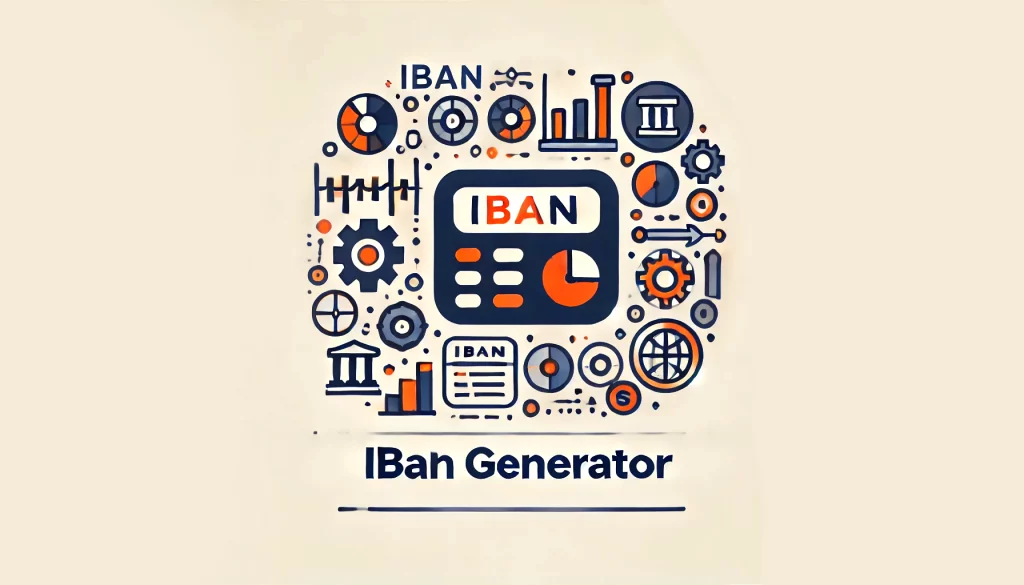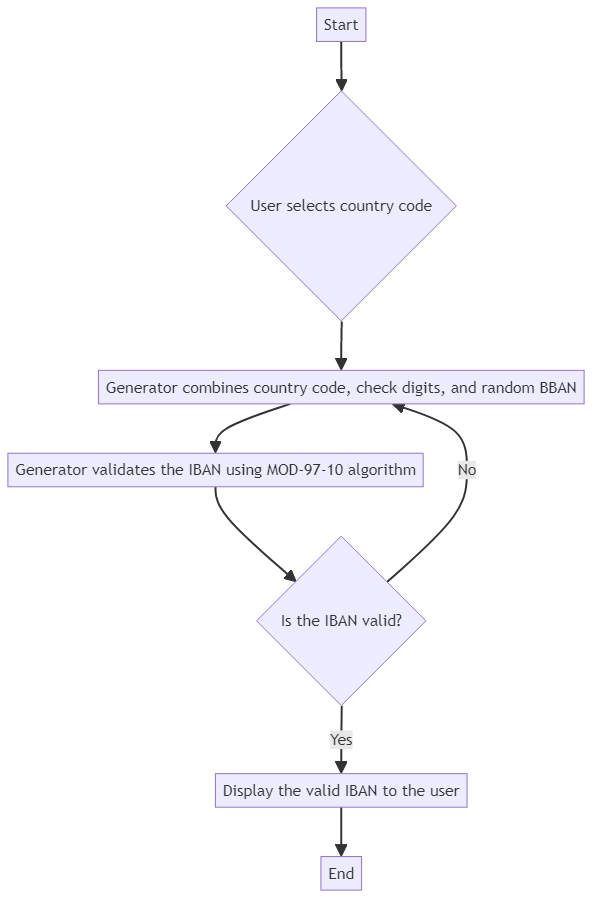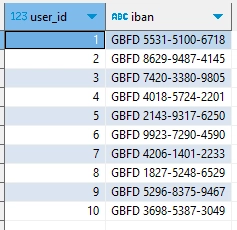
IBAN Generator: A Complete Overivew

Introduction
Are you looking for an easy way to generate IBAN numbers for testing purposes or data validation? An IBAN generator is a tool that helps you create valid International Bank Account Numbers quickly and easily. This article explains what an IBAN generator is, how it works, and gives examples of how it is used.
Understanding IBAN
Before diving into generators, let’s first understand what IBAN is. IBAN stands for International Bank Account Number. It’s a standardized format for identifying bank accounts across different countries, mainly used in Europe and some parts of the Middle East and North Africa.
The IBAN consists of up to 34 alphanumeric characters:
- A two-letter country code
- Two check digits
- The Basic Bank Account Number (BBAN)
Here’s an example of a valid IBAN: GB82 WEST 1234 5698 7654 32
The country code is ‘GB’ for the United Kingdom, followed by two check digits and the BBAN.
What is an IBAN Generator?
It is a software tool or online service that automatically generates valid IBAN numbers. These generated IBANs can be used for various purposes, such as:
- Testing banking systems and applications
- Generating dummy data for development and testing
- Validating user input for IBANs
Account Number Generator vs IBAN Generator
While an IBAN generator focuses on producing standardized international account numbers, it’s essentially a type of account number generator. These tools help generate valid and realistic bank account numbers for different use cases—especially in testing, development, and compliance validation.
Organizations often use an account number generator to create dummy financial records that mimic real-world scenarios. Tools like DataSunrise make it easy to generate secure and customizable account numbers, including IBANs, using synthetic data features.
Using an account number generator ensures consistency, accuracy, and automation when working with large-scale financial datasets.
Using generator saves time and effort compared to manually creating IBANs and ensures the generated numbers are in a valid format.
How Does an IBAN Generator Work?
Most generators follow these steps to create IBAN numbers:

- The user selects the country for which they want to generate.
- The generator combines the country code, check digits, and a randomly generated BBAN according to the country’s IBAN format.
- The generator validates the created IBAN using the MOD-97-10 algorithm to ensure it’s a valid number.
- The valid generated IBAN is displayed to the user.
Some advanced IBAN generators may offer additional features like bulk generation of IBANs, customization of the BBAN format, or integration with other banking tools.
DataSunrise IBAN Generator
DataSunrise offers a powerful IBAN generator feature as part of its suite of data management tools. With DataSunrise, you can create an IBAN generator as a periodic task, allowing for automated and scheduled generation of IBAN numbers.
This feature is particularly useful for organizations that require regular updates to their test data or need to generate large volumes of IBAN numbers consistently. Here’s how to set up an IBAN generator in DataSunrise:
- Create a Generator: First, create a new generator and choose the format for how the data will look. This step allows you to define the structure of the IBAN you want to generate:
- Set up a Periodic Task: Create a new periodic task in DataSunrise.
- Choose Synthetic Data Generation: Within the periodic task settings, select the “Synthetic Data Generate” option.
- Configure the String Column: In the string column configuration, select the IBAN generator you created in step 1.
- Execute and View Results: You can manually execute the periodic task to generate IBAN numbers. The result will be displayed as a table containing generated IBAN format strings:


This process allows for flexible and automated generation of IBAN numbers, making it easier to create test data or validate IBAN-related functionalities in your applications.
If you’re interested in learning more details about each step, we invite you to join our demo session.
Using an IBAN Generator: Examples
Let’s look at a couple of examples of how you can use an IBAN generator:
Example 1: Testing a Banking Application
Suppose you’re developing a banking application that needs to validate user-entered IBANs. To thoroughly test your validation logic, you need a large set of valid and invalid IBANs. Instead of manually creating them, you can use an generator to quickly generate IBANs for various countries and test cases.
Example 2: Generating Dummy Data
If you’re working with banking data and need to populate your database with realistic but fake IBAN numbers for testing or demonstration purposes, an IBAN generator can be a handy tool. You can easily generate a large number of valid IBANs and insert them into your database.
Conclusion
An IBAN generator is a valuable tool for anyone working with international banking systems or data. It simplifies the process of creating valid IBANs, saving time and reducing the risk of errors. Whether you need to test applications, generate dummy data, or validate user input, generator can help streamline your workflows.
When using an IBAN generator, ensure you select the correct country and customize the settings according to your needs. Always validate the generated IBANs before using them in production environments.
